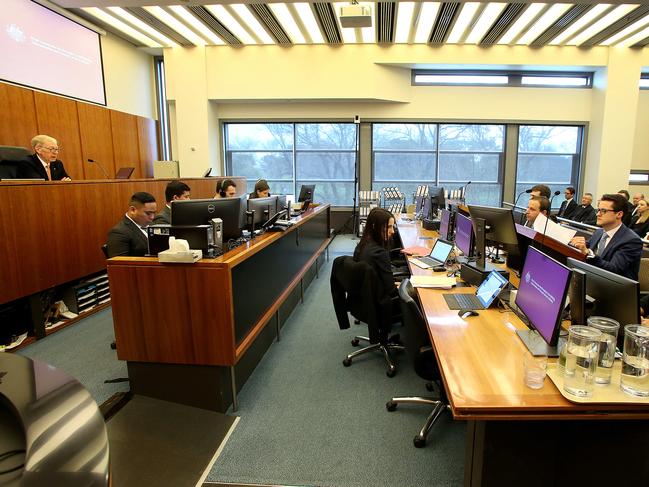Terry McCrann: Time for the big fix after the blame game
THERE’S a lot of blame to be shared for far too many Australians being burned for far too long by the banks and other financial institutions, writes Terry McCrann.
Terry McCrann
Don't miss out on the headlines from Terry McCrann. Followed categories will be added to My News.
THERE’S a lot of blame to be shared around by a lot of supposedly responsible people for far too many Australians being burned for far too long by the banks and other financial institutions.
All the evidence and all the analysis comes down to one omnibus conclusion — when the greed of individuals and the pursuit of profit runs into slack regulators just not doing their job, customers end up paying the bill and paying it again and again.
HEADING FOR A SURPLUS MINI-BUDGET
CUSTOMERS WAIT SIX YEARS FOR BANKS TO PAY UP

If the two main regulators — ASIC, which is supposed to catch and even more hopefully prevent bad and criminal behaviour; and APRA, which is supposed to ensure banks behave prudently and properly — had been doing their jobs, the problem would not have disappeared but it would have been dramatically smaller.
Absolutely critical would have been action early, punitive and above all public. The banks and even more individuals would have got the message: whether or not greed is good, if you let it override your responsibilities to deal fairly with customers, it will be extremely painful for you.
So where do we — the commission, banks, regulators, the government and the Opposition — go from here?
Arguably the most impressive part of the report was Commissioner Kenneth Hayne refraining from rushing to take the easy option — recommending more and more punitive laws and regulation.
This is not to suggest he wants to let the banks regulate themselves. Absolutely not: he has put as the number one objective, regulation that works and even better, works proactively and in real time.

It’s better for a bank customer not to become a victim in the first place — and if that fails, better that they get speedy justice and compensation, and in the process the behaviour is stopped and other victims prevented.
Without making recommendations, Commissioner Hayne has broadly pointed the way forward. The regulation needs to be simplified and focused.
This would also make it easier for ASIC and APRA to do their jobs. But they will need beefed-up powers, more and better staff, and they must also be held to account in real time.
We want a financial system and financial institutions in which we can have confidence and we can trust. It would be crazy to think we could have a system where customers and regulators were permanently at war with the banks.

It’s worth stressing the point that for all the bad behaviour uncovered over the past few months, the vast overwhelming interactions between banks and their customers are positive and completely unremarkable.
Importantly also, unlike many other countries we didn’t spend the decade since the GFC wondering whether our money was safe with them.
It really would be best if the political response became co-operatively bipartisan.
Yet the commission’s final report is scheduled for February which will be smack in the middle of federal election campaigning — whether the formal campaign or the informal period leading up to it.
This runs the risk of making something which is critical not just to every Australian today but for decades into the future a political battleground.
The government has to invite the Opposition into the policy tent.
The Opposition must — genuinely — accept.



